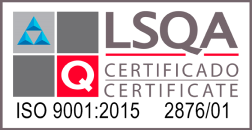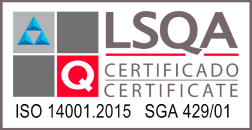The National Holidays in Chile are a special time for family gatherings and celebrations, where barbecues take center stage, especially during this year’s extended holiday period. However, despite the joy these gatherings bring, charcoal grilling has a significant impact on air quality and the health of those who enjoy them. A recent study by Alves et al. (2022) delves into how charcoal grilling emits high levels of pollutants that affect both the environment and public health.
Pollutant Emissions from Charcoal Grilling
Charcoal, traditionally used for grilling, generates a series of toxic emissions during its combustion. In their research, Alves and colleagues analyzed the gaseous and particulate emissions during the lighting of the charcoal and the cooking of various foods. They found that these emissions include fine particles (PM10 and PM2.5), volatile organic compounds (VOCs), carbon monoxide (CO), and polycyclic aromatic hydrocarbons (PAHs), many of which are highly harmful to health.
The charcoal lighting phase is one of the most polluting, raising PM10 particle concentrations between 28- and 104-times above background levels. This phase also emits large amounts of toxic compounds such as formaldehyde and ethylene, which can contribute to the formation of tropospheric ozone and other secondary pollutants in the atmosphere. During the grilling of fattier meats, emissions were even higher, as these foods, due to their high fat content, release more pollutants when fat drips onto the coals.
Impact on Health and the Environment
One of the most concerning findings of the study is that ultrafine particles (PM2.5 and PM1) constitute a large portion of the emissions during grilling. These particles, when inhaled, can penetrate deeply into the lungs and cause adverse health effects such as respiratory and cardiovascular diseases. Additionally, PAHs, which are released during charcoal burning and food cooking, are known for their carcinogenic potential, adding an extra health risk to those exposed to these fumes.
The toxicity of the emissions was also evaluated in the study through an ecotoxicity bioassay, and all types of emissions, both from charcoal lighting and food cooking, were shown to be toxic or highly toxic. This indicates that not only people but also the immediate environment can be negatively affected by the emissions from grilling.
National Holidays and Air Quality
During National Holidays, when thousands of Chilean families gather for outdoor barbecues, the impact on air quality becomes even more evident. In cities like Santiago, which already faces air pollution issues, the increase in the number of barbecues contributes to fine particulate matter (PM2.5) levels, exacerbating public health problems, especially for vulnerable individuals such as children, the elderly, and those with respiratory diseases.
The study by Alves et al. (2022) concludes that grilling fatty foods generates the highest pollutant emissions, suggesting that food choices can also influence the environmental impact of grilling. During National Holidays, when the consumption of meat, sausages, chorizos, and other foods is high, this situation could worsen air quality.
Cleaner Alternatives for Grilling
Despite the associated risks, it is possible to enjoy barbecues more responsibly. Using gas or electric grills is a cleaner alternative that reduces particulate and toxic compound emissions. Additionally, cooking in well-ventilated areas or outdoors helps disperse emissions, minimizing direct exposure to these pollutants.
Conclusion
Charcoal grilling is a fundamental tradition during National Holidays in Chile, but it also poses a significant challenge to air quality and public health. The findings of Alves et al. (2022) highlight the need to adopt more sustainable and responsible practices to enjoy this tradition without compromising our environment. Cleaner alternatives and conscious use of grills can significantly contribute to reducing pollution, allowing future celebrations to be healthier for everyone.
Reference
Alves, C.A., Evtyugina, M., Vicente, E., Gonçalves, C., Neto, A.I., Nunes, T., Kovats, N. (2022). Outdoor charcoal grilling: Particulate and gas-phase emissions, organic speciation and ecotoxicological assessment. Atmospheric Environment, 285, 119240. https://doi.org/10.1016/j.atmosenv.2022.119240











